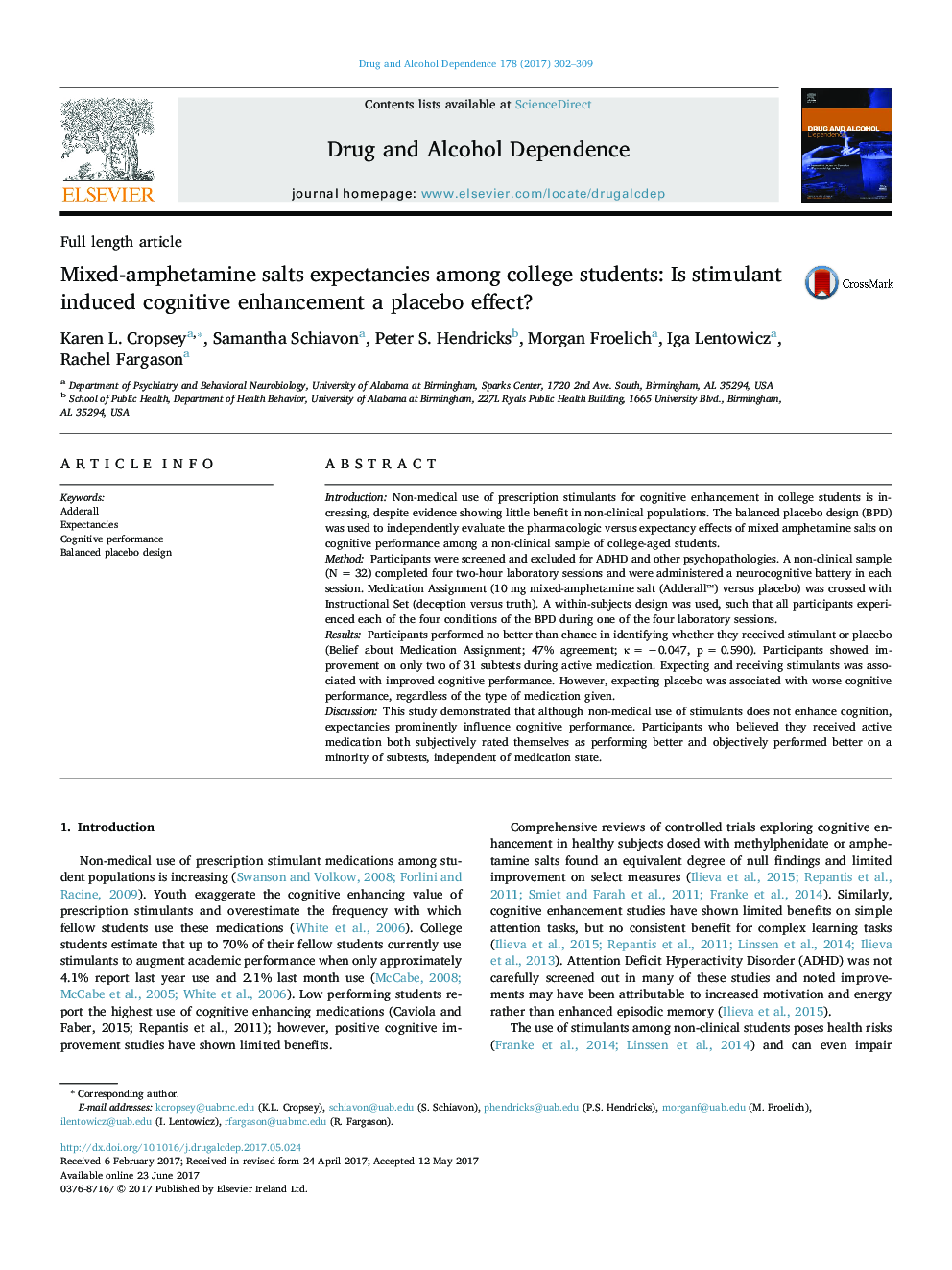| کد مقاله | کد نشریه | سال انتشار | مقاله انگلیسی | نسخه تمام متن |
|---|---|---|---|---|
| 5120360 | 1486113 | 2017 | 8 صفحه PDF | دانلود رایگان |
- Non-medical use of prescription stimulants among college students is increasing.
- Participants were given mixed amphetamine salts or placebo in four sessions.
- Performed unable to identify whether they received stimulant or placebo.
- Participants showed improvement on only 2 of 31 subtests during active medication.
- Expectancies rather than non-medical use of stimulants enhance cognition.
IntroductionNon-medical use of prescription stimulants for cognitive enhancement in college students is increasing, despite evidence showing little benefit in non-clinical populations. The balanced placebo design (BPD) was used to independently evaluate the pharmacologic versus expectancy effects of mixed amphetamine salts on cognitive performance among a non-clinical sample of college-aged students.MethodParticipants were screened and excluded for ADHD and other psychopathologies. A non-clinical sample (N = 32) completed four two-hour laboratory sessions and were administered a neurocognitive battery in each session. Medication Assignment (10 mg mixed-amphetamine salt (Adderallâ¢) versus placebo) was crossed with Instructional Set (deception versus truth). A within-subjects design was used, such that all participants experienced each of the four conditions of the BPD during one of the four laboratory sessions.ResultsParticipants performed no better than chance in identifying whether they received stimulant or placebo (Belief about Medication Assignment; 47% agreement; κ = â0.047, p = 0.590). Participants showed improvement on only two of 31 subtests during active medication. Expecting and receiving stimulants was associated with improved cognitive performance. However, expecting placebo was associated with worse cognitive performance, regardless of the type of medication given.DiscussionThis study demonstrated that although non-medical use of stimulants does not enhance cognition, expectancies prominently influence cognitive performance. Participants who believed they received active medication both subjectively rated themselves as performing better and objectively performed better on a minority of subtests, independent of medication state.
Journal: Drug and Alcohol Dependence - Volume 178, 1 September 2017, Pages 302-309
